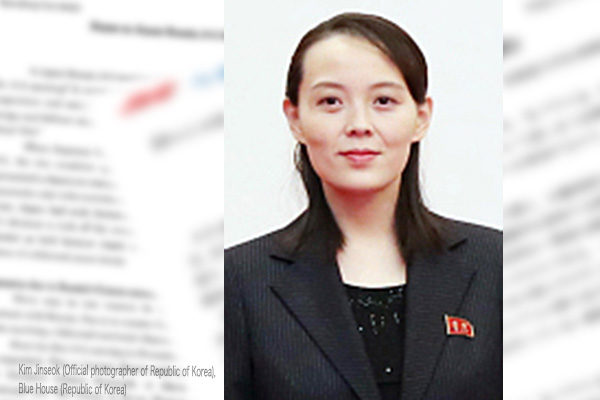The North Korean regime of Kim Jong Un has suddenly hardened its stance toward Japan. While Japan’s Fumio Kishida administration has merely reiterated its long-standing principles, senior North Korean officials have seen the reiteration as a problem and repeatedly refused to engage in any contract or negotiations with Japan.
Kim Yo Jong’s about-face
On March 25, North Korea’s de facto No. 2 leader Kim Yo Jong, a younger sister of its top leader Kim Jong Un, issued a statement revealing that Prime Minister Kishida “through another channel” conveyed his intention to meet with Kim Jong Un as soon as possible. “If Japan is […] engrossed in the abduction issue that has no further settlement and way to know, the prime minister cannot but meet a criticism that his design is little short of a bid for popularity,” she said.
On March 26, Kim Yo Jong released another statement vowing to “reject any contact and negotiations” with Japan for the reason that the Kishida administration’s Chief Cabinet Secretary Yoshimasa Hayashi on the previous day said Pyongyang’s claim that the abduction issue had been resolved was unacceptable. She also blamed Hayashi for raising the nuclear missile issue. However, Hayashi did not say anything new. He expressed the same position in response to Kim Yo Jong’s February 15 statement that referred to Kishida’s potential visit to Pyongyang.
North Korea’s pressure did not end there. On March 29, the North Korean ambassador to China revealed that a Japanese embassy official in Beijing sent an e-mail requesting a contact and stated that North Korea “has no reason to meet with the Japanese side at any level.” The ambassador explicitly announced the position through the state-run Korean Central News Agency.
Immediately afterwards, North Korean Foreign Minister Choe Son Hui issued a statement saying: “Referring to the ‘abduction issue’ again, Japanese Prime Minister Kishida clarified the stand that he would make sustained efforts under the established policy for the settlement of various pending issues between the DPRK (Democratic People’s Republic of Korea) and Japan. […] The DPRK has nothing to solve as regards the ‘abduction issue’ insisted by Japan and, moreover, it has neither the responsibility nor the will to make any effort for it.” As admitted by the foreign minister, Kishida has simply reiterated his long-standing policy.
Potential dispute over conditions for Kishida’s visit
North Korea may have enhanced pressure on Japan to win concessions possibly because Japan has refused to accept unreasonable North Korean demands such as rice aid before Kishida’s visit to Pyongyang, for instance, at behind-the-scene bilateral negotiations on conditions for Kishida’s visit.
The Kishida administration should not react nervously to published North Korean messages but must retain its attitude of requesting the return of all Japanese citizens abducted by North Korea before providing humanitarian aid and lifting Japan’s own, specific sanctions.
Tsutomu Nishioka is a senior fellow and a Planning Committee member at the Japan Institute for National Fundamentals and a specially appointed professor at Reitaku University. He covers South and North Koreas.


